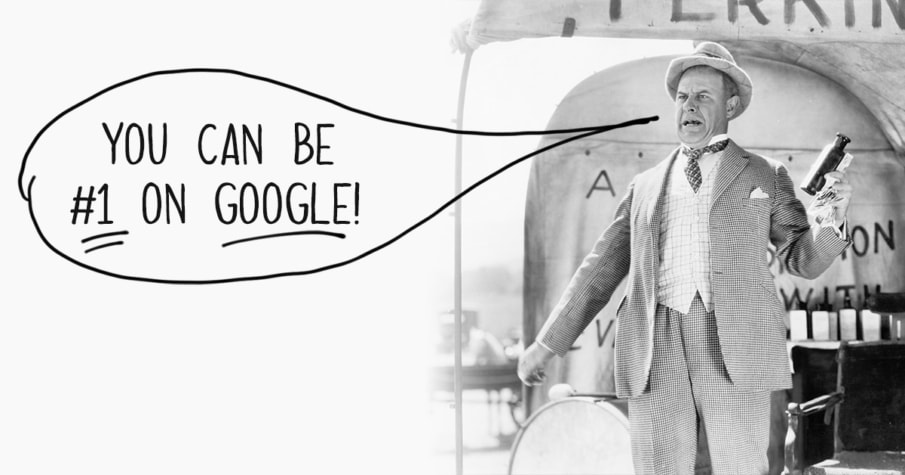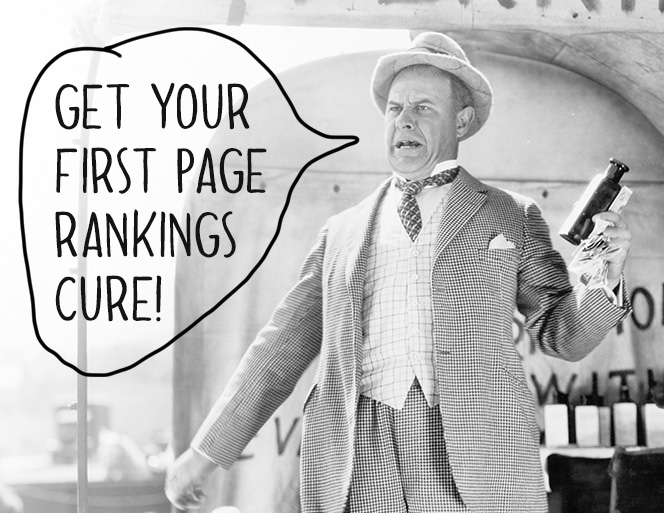
How to See Around the Corner: Positioning Your Company for Market Shifts
From the economy to customer behavior, many variables could impact your business’ viability in the future. Learn how to look around the corner to what’s ahead.

“If you’re not on the first page of Google rankings,” the man at the front of the room paused dramatically, “your business will fail.”
I watched as the audience gaped in horror – some looking around at one another in discouraged disbelief, others taking furious notes. I imagined them going back to the office the next day and proclaiming to their leadership team loudly, “We need to invest in SEO.”
The speaker thanked everyone for their time and shook hands at the back of the room, answering additional questions and handing out business cards (he owns an SEO firm, you see). I walked out of the seminar alongside my fellow audience members, their heads abuzz with his powerful closing statement. The first page? They were probably thinking. Or we’ll fail?
No, I wanted to tell them. No, you won’t.
Don’t get me wrong – I wish nothing but the best for these seminar attendees. I hope that they contact the speaker, that his company does in fact land them on the first page of search results, and that all of their business dreams come true.
I just suspect, unfortunately, that they will not.
It’s much more likely that they have fallen victim to tactical marketing – or, the assertion that a single marketing lever will be the answer to all your business woes. I don’t mean to pick on SEO specifically, since the challenge here is wider than that – but it provides a handy example of this sort of narrow thinking.
The speaker at this marketing seminar made a splash by stating definitively that not being on the first page of search results equals failure – let’s unpack this for a moment.
First, he neglected to mention what you should be on the first page for. This omission makes sense in the context of a presentation, since every audience member would be targeting a different search term… but keyword strategy is the whole shebang – the “meat and potatoes” if you will – of any SEO program. Leaving it out leaves too much open to interpretation. What is a business owner to do after going home from that presentation? If she owns an insurance company, should she expect to be on the first page of Google results for “insurance”? No.
Moreover, SEO is a long game. Any firm or specialist who claims they'll deliver first page, let alone first position, rankings immediately is selling snake oil. SEO has a compounding effect – as it should – and will improve as you develop and enhance the content on your site.

Unfortunately, some firms even take this ambiguity to a predatory new level: they’ll promise you “the first page of search results,” then wait until you’ve signed on the dotted line before specifying that you’ll be on the first page for your own company name. And if someone is already searching for that, you probably don’t need an SEO firm’s help to capture them, do you?
Not to mention, in order to be successful, any SEO strategy must be driven by just that – strategy. If you’re entering a new industry vertical or regional market, that means first understanding that market. SEO is no different – you should be able to define in persona-level detail who it is you want to be clicking on your search result, so you can market to them effectively.
Unfortunately, many SEO firms write to search engine algorithm robots, not to people… and their “success metrics” are reflective of this. At best, they are driving phone calls or form submissions. At worst, they are driving “clicks” (or traffic) alone.
But what good does a 1,000% increase in traffic do, if it’s from people who could never do business with you? Or an increase in phone calls from people requesting a service you don’t offer?
Another key piece missing here is that even the best-laid SEO plans in the world won’t help you much if the rest of your marketing falls flat.
Case in point: When I got home from the aforementioned seminar, I visited the speaker’s company website. It left a lot to be desired – including a compelling brand, a logical user path, lead capture, or any website best practices to speak of. Which begs the question: why devote resources to sending people to your website, if your website won’t convert them anyway?
Perhaps the greatest trouble with SEO firms (or, for that matter, any firm selling a specific tactic) is that they will swear up and down that their tactic is the right one without asking the necessary question first: What are you trying to accomplish? And, by extension, does this tactic even make sense for you?
For example, at Kinesis we have several manufacturing clients who work in aerospace and defense – where much of the sales process is driven by who you know. When a Supply Chain Manager for a major government contractor seeks out a new vendor, they’re unlikely to do so via a web search. Instead, they’re going to ask around to their Quality Manager, Engineering Manager, or other decision influencers for recommendations.
Our marketing goals for this company, then, are to build relationships, fuel that referral process, and (when a decision maker does land on the site) make the information they’re looking for easy to find. Only after we’ve gotten our client’s strategic house in order does it make sense to talk traffic.
Lest I sound like a cynic, I’ll add here that there are many cases where SEO is exactly the right strategy. In fact, we’ve mentioned before that SEO (and content marketing in general) is one of Kinesis’ greatest sources of business. It is without a doubt a relevant marketing tactic for many organizations.
But it isn’t the only tactic, and it isn’t right for all organizations. And when it is, it must be used in a way that is thoughtful, comprehensive, and aligned with company goals. The same can be said for advertising, PR, branding, and any number of other marketing tactics: they are parts to a whole, critical components of a balanced marketing mix. (And we all know that mix + frequency = results.) Think of it as building a bicycle – the wheels and the handlebars are necessary components, but won’t get you anywhere by themselves.
In other words, if you’re not on the first page of Google rankings… no, fellow audience members, you are not going to fail.
But buying a kickstand when you need a whole bike? You just might.
Get insights like this straight to your inbox.